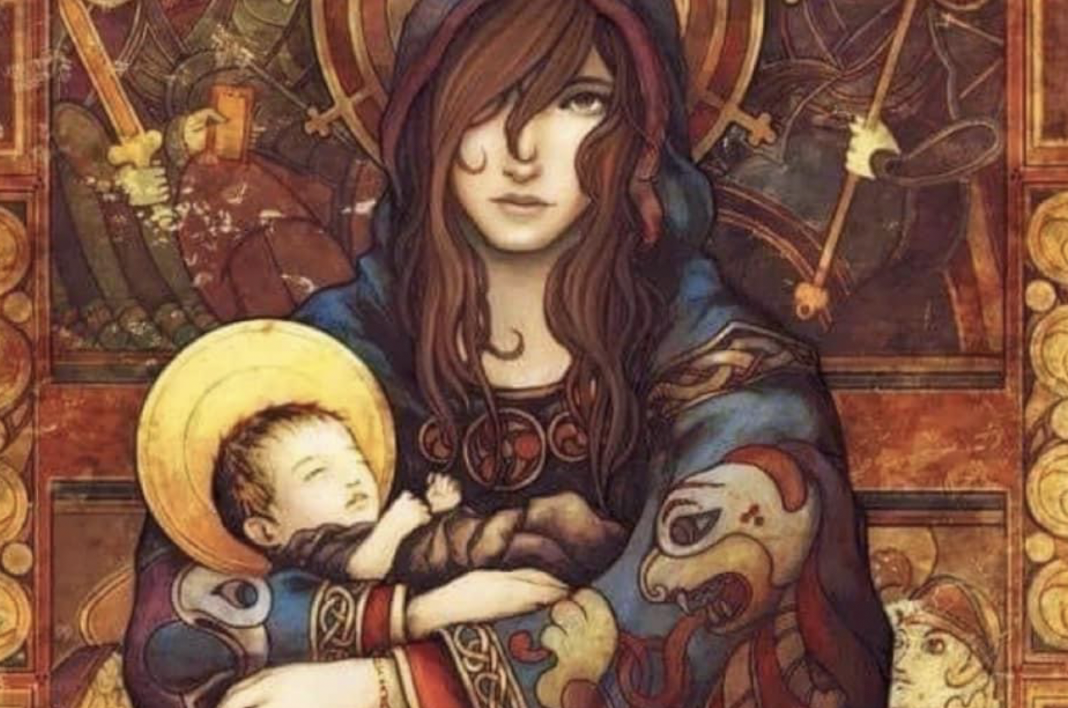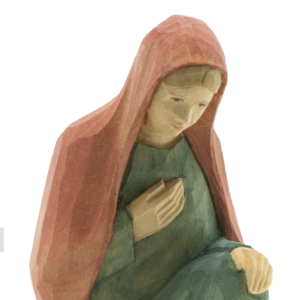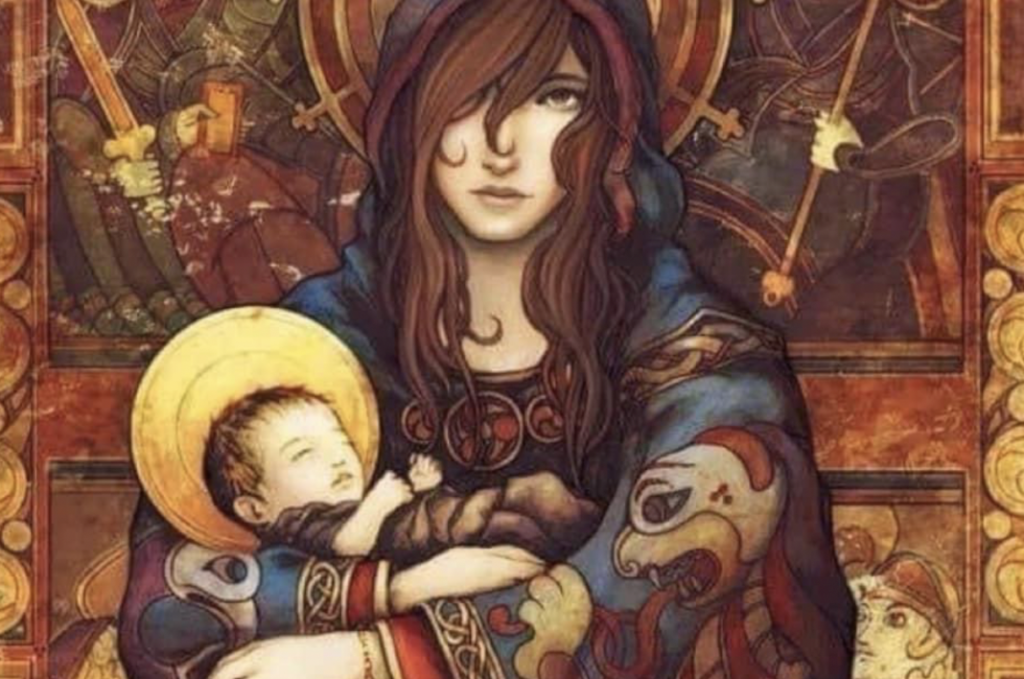

In the New Testament, Mary’s real name is Miriam which literally means “their rebellion.” The Romans had overthrown the local rulers, put in place their own puppet rulers, and often the troops from Syrian front line would come back to near Nazareth to quell local uprisings. The locals had a lot to rebel against. The Roman Empire oppressed its subject nations and was particularly hard on a nation on its far eastern Palestinian fringes. They were a strongly monotheistic people, and not party to worshipping Caesar as God or Son of God, nor keen on the heavy force of the pax Romana impacting upon their lives. Taxation – topical – was excessive and work for Roman construction projects was back breaking and took the lives of many. Akin to today in some ways, many of their leaders colluded with the over whelming forces outside of their borders. It was in this context that an angel visited Mary and informed her of God plans. What could she say to God? She might well decline But rather than resisting, she conspired to be part of Yahweh’s holy, mischievous plot. She said yes – in order to be a part of a bigger rebellion.
When she learnt that she was to bear the Christ-child, she sang a song, one of praise and of protest. It was raucous, not timid. Can we accept that as a Christian, we too can protest?

In our Advent readings we have heard of a comparison, or so it would seem, between John the Baptist and Jesus. John the subversive counter-cultural character who leads us to Jesus, meek and mild?
Luke foretells of Jesus’ birth. We have the amazing story of the virgin birth, albeit the Hebrew word for almah may have meant young girl. There’s mystery entwined at every turn of the story but one thing we might have missed was that women are the focus. We have Elizabeth in dialogue with Mary and an Angel declaring “Greetings favoured woman”. Like John with Jesus, Elizabeth will be one that foretells of Mary. Elizabeth’s husband is unable to speak.
Mary leaps in praise with the Magnificat, here is that subversive song:
“My soul glorifies the Lord and my spirit rejoices in God my Saviour,
for he has been mindful of the humble state of his servant.
From now on all generations will call me blessed,
for the Mighty One has done great things for me — holy is his name.
His mercy extends to those who fear him, from generation to generation.
He has performed mighty deeds with his arm;
he has scattered those who are proud in their inmost thoughts.
He has brought down rulers from their thrones but has lifted up the humble.
He has filled the hungry with good things but has sent the rich away empty.
When we read of this, Mary’s song of praise, she speaks of being a lowly servant, of being humbled and her son to be exalted. He has filled the hungry and enabled the poor to flourish. Elizabeth’s child is eventually born, and Zechariah turns to his iPad and gives him the name John. Mary’s pregnancy is one written by a man: simple, joyful, without any mention of morning sickness, backache and struggling in the hot weather. Nevertheless, in this passage we hear of Mary, not gentle nor tender but passionate and rousing.
Here’s a poem about this rebellious Mary
Let it be…Morning world, Mary here.
I know you don’t know me yet.
I have a message from deep within my soul
From a child who grows within, Let it be…
Yes, I’m poor, voiceless, unseen.
Someone you won’t associate with.
I hope that this child, will change our world, Let it be…
Allow yourself to believe in change.
That this child can lift you up too.
Can show you how to love the poor, Let it be…
I hear your doubts, your negative thoughts.
This child hears them too.
If my life can be different, so can yours, Let it be…
That’s it! That’s what we’re being asked to do.
Let go of our insecurities, our fears.
This child will grow up to change our lives.
Let’s trust, and step out to love our neighbour…
Let’s just let it be…
Whereas Mary is often known as Theotokos – the mother of God, some have even said that she is Punktokos – the mother of all rebels with a cause. We are all invited to be part of that: that is loving enemies, feeding the hungry, clothing the naked, tending to the sick, – no mention of needing to make money – proclaiming that a counter cultural peasant who taught non-violent resistance and was killed, is the one to follow.
When she learnt that she was to bear the Christ-child, she sang a song, one of praise and of protest. It was raucous, not timid. Can we accept that as a Christian we too can protest?
The dialogue was very good